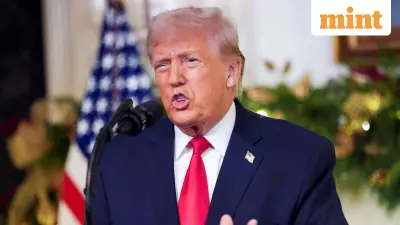
For years, Anirban Bhattacharya wore the label 'Rushian' with pride—a playful term describing Indians with deep affection for Russian culture, language, and history. Like many from his generation, he was captivated by Russian literature, cinema, and the romanticized Soviet legacy that still resonates in certain Indian circles.
The Cultural Romance That Faded
His journey began with language classes, Pushkin's poetry, and dreams of experiencing Russia's rich cultural tapestry firsthand. The connection felt almost spiritual, bridging continents through shared historical ties and Cold War-era camaraderie between India and the USSR.
"We grew up hearing about how Russia stood by India during difficult times," he recalls. "For many of us, this translated into uncritical admiration for everything Russian."
When Reality Intervened
The Ukraine war became the painful turning point. As tanks rolled across borders, Bhattacharya watched his Russian friends and acquaintances respond with disturbing enthusiasm for the invasion.
The cognitive dissonance became unbearable. The same culture that produced Dostoevsky and Tchaikovsky was now celebrating destruction and occupation. His social media feeds filled with nationalist fervor that made him question everything he thought he knew about Russia.
The Breaking Point
What finally shattered the illusion wasn't the geopolitical analysis or international condemnation, but personal interactions. Conversations with Russian peers revealed a starkly different worldview—one where imperial ambitions outweighed human costs.
"I realized my romanticized version of Russia existed only in books and old films," he admits. "The contemporary reality was something entirely different, and I could no longer ignore it."
A New Political Consciousness
This awakening forced Bhattacharya to reexamine not just his views on Russia, but also India's complicated relationship with Moscow. The convenient neutrality of Indian foreign policy suddenly felt inadequate when confronted with human suffering.
He began questioning why Indian discourse often overlooks Russian aggression while vigorously criticizing Western foreign policy failures. The double standards became increasingly difficult to reconcile with his moral compass.
Lessons in Critical Thinking
His experience offers valuable insights for other 'Rushians' and anyone navigating complex international relationships:
- Cultural appreciation shouldn't require political blindness
- Historical friendships need periodic reassessment
- National interests shouldn't override human rights concerns
- Critical thinking means questioning all sides, not just the convenient targets
Moving Forward
While Bhattacharya hasn't abandoned his love for Russian language and arts, his perspective has fundamentally changed. The separation between cultural appreciation and political critique is now clear and non-negotiable.
"I still value what Russian culture has given the world," he reflects. "But I can no longer call myself a 'Rushian.' That term implied an uncritical embrace that current circumstances make impossible."
His story represents a broader awakening among many Indians who are beginning to scrutinize long-held assumptions about international relationships and their own place in a rapidly changing global order.





